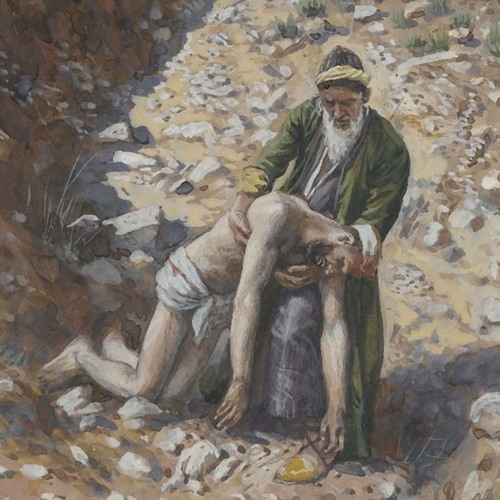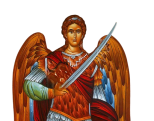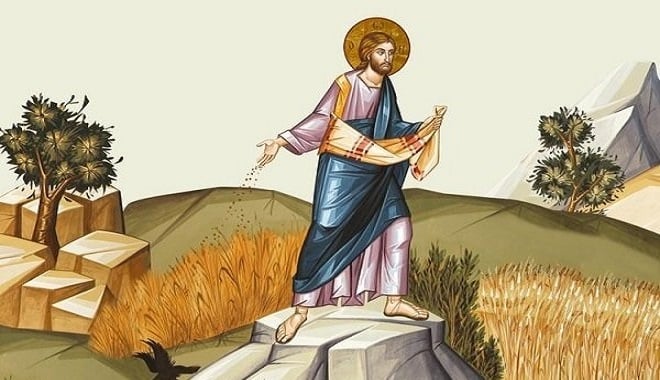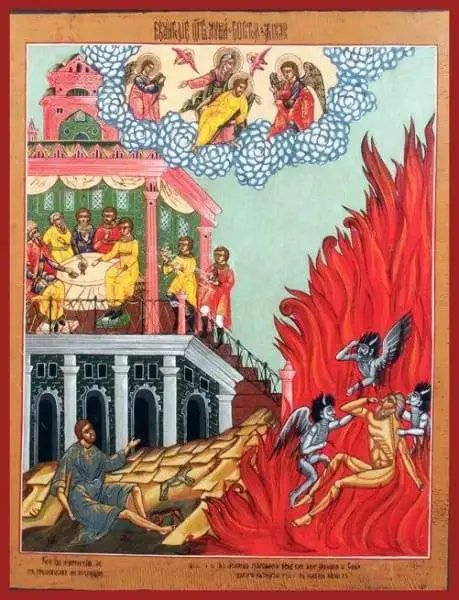
In the Name of the Father, and of the Son, and of the Holy Spirit. Amen.
Beloved in Christ, today we contemplate two readings that reveal the very heart of our faith. But first, let me tell you about a monk I on Mount Athos…
There was an elderly monk named Father Nikolaos who lived in a remote cell near Karyes. He was known for his strict fasting and lengthy prayers, many pilgrims would seek him out for his wisdom. One winter morning, as he was walking the rocky path to the monastery for Divine Liturgy, he encountered a Turkish sailor whose boat had crashed on the rocky shore during a storm. The sailor was injured, soaking wet, and clearly frightened to be alone on the Holy Mountain where no Muslim is permitted to set foot.
Father Nikolaos faced a choice. The strict rules of the Athonite community forbade helping the Muslim remain on the Holy Mountain. His fellow monks would be scandalized if they knew. Yet before him was a man created in God’s image, suffering and in need. Like the priest and Levite in our Lord’s parable, he could have passed by, justified by religious law.
As St. John Chrysostom tells us in his commentary on this passage: “Do not say ‘He is an enemy,’ ‘He is a heretic,’ ‘He is a Jew.’ If you see him in distress, do not scrutinize his life. He has a claim on your help simply because he is in misfortune.”
And here we come to our epistle, where the blessed Apostle Paul writes with his own hand, making large letters: “For neither circumcision counts for anything, nor uncircumcision, but a new creation.” St. Cyril of Alexandria expounds on this, saying: “The law of Moses no longer holds sway, but rather the new law of Christ, which works through love.”
Father Nikolaos remembered these teachings. Like the Samaritan in our Lord’s parable, he set aside all religious prejudice. He brought the sailor to his cell, gave him dry clothes, tended his wounds, and shared his meager food. For three days, he kept the man’s presence secret while helping him regain his strength. On the fourth day, he guided him through the mountain paths to a point where he could safely return to his people.
When word eventually got out, some monks were scandalized. “You have defiled the Holy Mountain!” they said. But the wise Father Nikolaos replied with the words of St. Isaac the Syrian: “What is a merciful heart? It is a heart on fire for all creation, for humans, for birds, for animals, for demons, and for all that exists.”
Brothers and sisters, we who bear the name of Christ often glory in our external pieties – our fasting, our prayers, our church attendance. Like those who insisted on circumcision in Galatia, we can become focused on the letter that kills rather than the Spirit that gives life. The priest and Levite in the parable were technically correct according to the law – touching a bloody, possibly dead man would have made them ritually unclean. But they missed the weightier matters of the law: mercy, compassion, love.
St. Gregory the Theologian reminds us: “Nothing so much as mercy and compassion makes us like God. Let us then put on compassion as a garment, that we may become like the Master.”
The marks of the Lord Jesus that Paul bore were not the marks of ritual observance, but the wounds of love – love that crosses boundaries, love that risks reputation, love that bears the burdens of the other. Father Nikolaos bore such marks in the criticism he endured for showing mercy to a supposed enemy.
As we leave this place today, let us ask ourselves: What boundaries of religion, race, or reputation are we unwilling to cross to show Christ’s love? Who lies wounded by the roadside that we pretend not to see? Let us pray for the courage to be like the Samaritan, like Father Nikolaos, like Christ Himself – willing to be wounded by love for the sake of healing others’ wounds.
For in Christ Jesus, there is neither Jew nor Greek, circumcised nor uncircumcised, Orthodox nor Muslim – only faith working through love. Let us go forth and do likewise.
In the Name of the Father, and of the Son, and of the Holy Spirit. Amen.
Copyright © 2025 The Rev. Adrian Augustus. The Russian Orthodox Church of the Archangel Michael, Blacktown, NSW.


